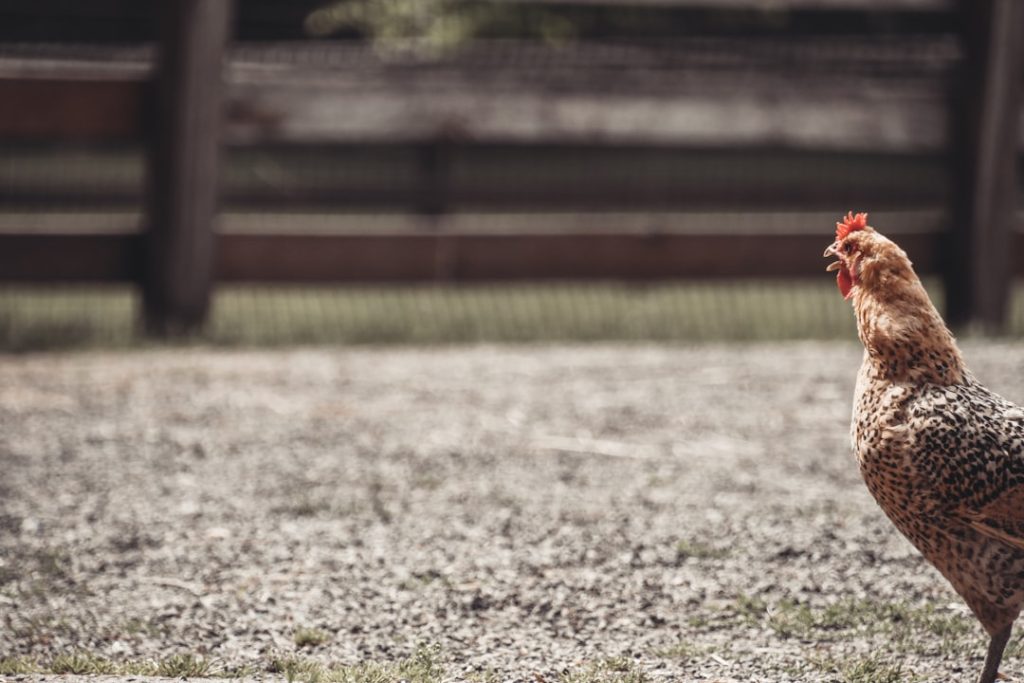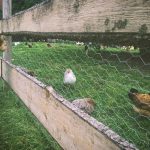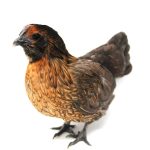Keeping backyard chickens in the UK has gained popularity in recent years as more individuals seek sustainable and self-sufficient lifestyles. Before starting, it is crucial to check with local councils regarding regulations on chicken keeping, including the number of chickens allowed and coop placement requirements. Essential preparations include investing in a suitable coop and run, providing a balanced diet, and ensuring regular health checks for the chickens.
Potential keepers should consider the daily time commitment required for chicken care and maintenance. Thorough research is vital for new chicken keepers to understand the responsibilities involved. Joining online forums or local chicken keeping groups can provide access to experienced keepers’ advice and support.
Prospective keepers should also consider the initial costs of setting up a coop and run, as well as ongoing expenses for feed, bedding, and veterinary care. Proper education and planning are key to a successful and rewarding experience as a backyard chicken keeper in the UK.
Table of Contents
- 1 Choosing the Right Breed for Your Backyard
- 2 Coop and Run Set-Up: Creating a Safe and Comfortable Environment for Your Chickens
- 3 Feeding and Nutrition: Providing a Balanced Diet for Your Flock
- 4 Health and Hygiene: Maintaining the Well-being of Your Chickens
- 5 Egg Production: Maximizing the Benefits of Keeping Backyard Chickens
- 6 Legal Considerations: Understanding the Regulations and Responsibilities of Keeping Chickens in the UK
- 7 FAQs
- 7.1 What are the benefits of keeping backyard chickens in the UK?
- 7.2 What are the legal requirements for keeping backyard chickens in the UK?
- 7.3 What do backyard chickens in the UK need to thrive?
- 7.4 What are some common challenges of keeping backyard chickens in the UK?
- 7.5 What are some popular chicken breeds for backyard poultry keeping in the UK?
Key Takeaways
- Keeping backyard chickens in the UK requires basic knowledge of their care and needs.
- Choosing the right breed for your backyard depends on factors such as space, climate, and egg production.
- Creating a safe and comfortable coop and run is essential for the well-being of your chickens.
- Providing a balanced diet with the right nutrients is crucial for the health and productivity of your flock.
- Regular health checks and maintaining hygiene are important for preventing diseases and ensuring the well-being of your chickens.
Choosing the Right Breed for Your Backyard
Egg Production and Temperament
When selecting a breed, it’s essential to consider factors such as egg production and temperament. If you’re primarily interested in egg production, popular breeds like the Rhode Island Red, Sussex, and Leghorn are known for their high egg-laying capabilities. On the other hand, if you’re looking for chickens with friendly and docile personalities, breeds like Orpingtons, Silkies, and Wyandottes are known for their gentle nature and suitability as family pets.
Space and Climate Considerations
It’s also crucial to consider the size of your backyard and the space available for your chickens to roam. Some breeds are more suited to free-ranging, while others are content in smaller spaces. Additionally, certain breeds are better equipped to handle colder or wetter climates, so it’s important to choose a breed that is well-suited to the weather conditions in your area.
Research and Selection
Ultimately, the right breed for your backyard will depend on your specific needs and preferences. Take the time to research different breeds and consider what qualities are most important to you as a chicken keeper. With numerous breeds to choose from in the UK, each with its unique characteristics and qualities, you’re sure to find the perfect fit for your flock.
Coop and Run Set-Up: Creating a Safe and Comfortable Environment for Your Chickens
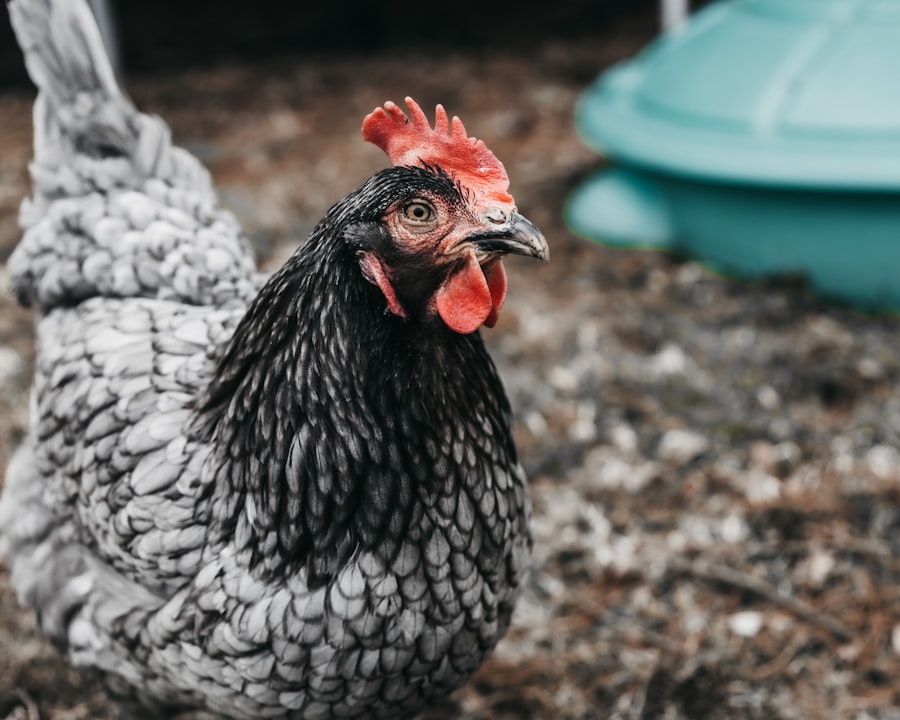
Creating a safe and comfortable environment for your chickens is essential for their well-being and happiness. The coop and run are where your chickens will spend the majority of their time, so it’s important to invest in a high-quality set-up that meets their needs. When designing or purchasing a coop, it’s important to consider factors such as size, ventilation, and predator protection.
The coop should provide at least 2 square feet of space per chicken, with adequate ventilation to prevent moisture build-up and respiratory issues. Additionally, the coop should be secure and predator-proof, with sturdy locks and wire mesh to keep out foxes, rats, and other potential threats. In addition to the coop, a spacious run is essential for allowing your chickens to stretch their legs and engage in natural behaviors such as scratching and dust bathing.
The run should provide at least 8-10 square feet of space per chicken, with access to fresh grass and soil for foraging. It’s also important to provide shelter within the run, such as a covered area or trees for shade and protection from the elements. By creating a safe and comfortable environment for your chickens, you can ensure that they are happy and healthy, while also minimizing the risk of potential issues such as stress or disease.
Feeding and Nutrition: Providing a Balanced Diet for Your Flock
Providing a balanced diet is essential for the health and well-being of your flock. Chickens require a diet that is rich in protein, vitamins, and minerals to support egg production, feather growth, and overall health. A good quality commercial feed is an excellent foundation for your chickens’ diet, providing essential nutrients in a convenient and easily digestible form.
When choosing a feed, look for options specifically formulated for laying hens, which will contain higher levels of calcium and other nutrients needed for egg production. In addition to commercial feed, it’s important to supplement your chickens’ diet with fresh fruits and vegetables, as well as occasional treats such as mealworms or kitchen scraps. This not only provides variety in their diet but also helps to keep them entertained and engaged.
It’s also important to provide access to clean water at all times, as dehydration can quickly lead to health issues in chickens. By providing a balanced diet that meets their nutritional needs, you can ensure that your flock remains healthy and productive.
Health and Hygiene: Maintaining the Well-being of Your Chickens
Maintaining the health and hygiene of your chickens is crucial for preventing disease and ensuring their overall well-being. Regular health checks are essential for monitoring the condition of your flock and identifying any potential issues early on. This includes checking for signs of illness or injury, as well as monitoring egg production and behavior patterns.
Additionally, it’s important to keep an eye on the cleanliness of the coop and run, as a clean environment helps to prevent the spread of bacteria and parasites. In addition to regular health checks, it’s important to establish a good hygiene routine for your chickens. This includes regularly cleaning out the coop and run, replacing bedding, and providing dust baths for your chickens to keep themselves clean.
It’s also important to practice good biosecurity measures, such as limiting contact with other poultry flocks and disinfecting equipment to prevent the spread of disease. By maintaining good hygiene practices and staying vigilant about your chickens’ health, you can help to ensure that they remain happy and healthy.
Egg Production: Maximizing the Benefits of Keeping Backyard Chickens
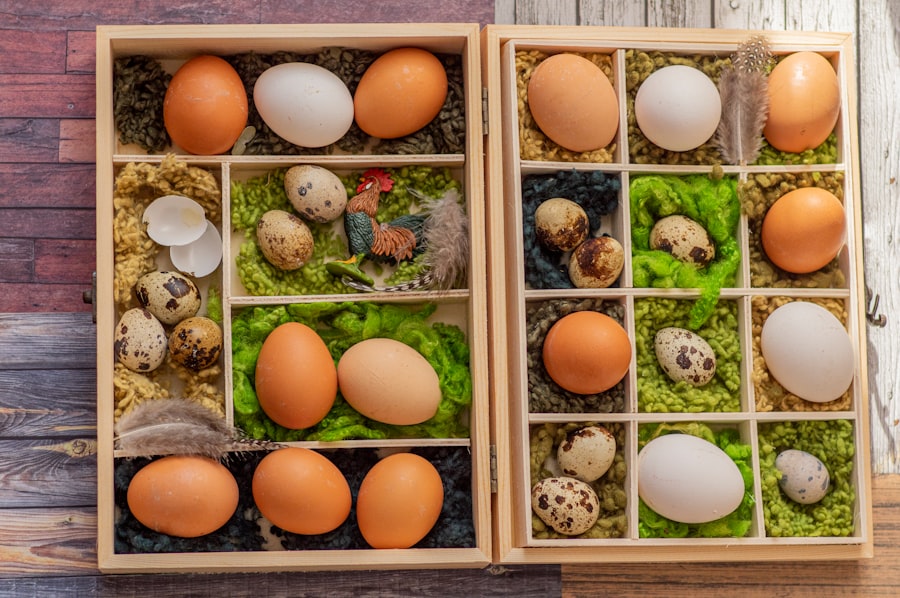
Nutrition and Environment: The Foundation of Healthy Laying Habits
Maximizing egg production requires providing your hens with the right conditions and nutrition to support healthy laying habits. This includes ensuring that they have access to a balanced diet that meets their nutritional needs, as well as providing a comfortable environment that minimizes stress and encourages natural behaviors.
Breed and Age: Key Factors in Egg Production
In addition to nutrition and environment, it’s important to consider factors such as breed and age when maximizing egg production. Certain breeds are known for their high egg-laying capabilities, so choosing breeds such as Leghorns or Rhode Island Reds can help to ensure a steady supply of eggs. Additionally, younger hens are generally more productive layers than older hens, so it’s important to consider replacing older hens with younger ones as they reach the end of their laying cycle.
Creating a Thriving Flock
By providing the right conditions and nutrition for your hens, you can help to maximize egg production while also ensuring that your flock remains healthy and happy.
Legal Considerations: Understanding the Regulations and Responsibilities of Keeping Chickens in the UK
Before embarking on your backyard chicken-keeping journey in the UK, it’s important to familiarize yourself with the legal regulations and responsibilities involved. The regulations regarding keeping chickens can vary depending on your location, so it’s essential to check with your local council or authority to ensure that you are compliant with any specific requirements or restrictions. In general, there are regulations in place regarding the number of chickens allowed per household, as well as guidelines for coop size and placement.
For example, some councils may have restrictions on keeping roosters due to noise concerns, while others may require specific distances between coops and neighboring properties. Additionally, there may be regulations regarding biosecurity measures or disease control that you will need to adhere to. In addition to legal regulations, it’s important to consider the responsibilities involved in keeping chickens.
This includes providing proper care and housing for your flock, as well as taking steps to prevent any potential nuisance or health risks to neighbors or the local community. By understanding the legal considerations and responsibilities involved in keeping chickens in the UK, you can ensure that you are compliant with regulations while also being a responsible and considerate chicken keeper in your community. In conclusion, keeping backyard chickens in the UK can be a rewarding experience that provides fresh eggs, natural pest control, and an opportunity to connect with nature.
By understanding the basics of chicken keeping, choosing the right breed for your backyard, creating a safe environment for your flock, providing a balanced diet, maintaining their health and hygiene, maximizing egg production, and understanding legal considerations; you can set yourself up for success as a backyard chicken keeper in the UK. With careful planning and consideration of these factors, you can enjoy all the benefits that come with raising happy and healthy chickens in your own backyard.
If you’re considering keeping backyard chickens in the UK, you may want to explore the idea of turning a shed into a chicken coop. This article from Poultry Wizard provides helpful tips and guidance on how to repurpose a shed to create a comfortable and functional living space for your feathered friends. Check out the article here for more information on this innovative approach to housing your chickens.
FAQs
What are the benefits of keeping backyard chickens in the UK?
Keeping backyard chickens in the UK can provide a sustainable source of fresh eggs, natural pest control, and a rewarding hobby for individuals and families. Chickens also produce high-quality fertilizer for gardens and can help reduce food waste by consuming kitchen scraps.
What are the legal requirements for keeping backyard chickens in the UK?
In the UK, individuals are allowed to keep a certain number of chickens without needing a license. However, there are regulations regarding the welfare of the chickens, such as providing adequate housing, access to outdoor space, and proper care. It is important to check with local authorities for specific regulations in your area.
What do backyard chickens in the UK need to thrive?
Backyard chickens in the UK need a secure and predator-proof coop for shelter, access to a run or outdoor space for exercise, a balanced diet of chicken feed and fresh water, and regular health checks to ensure their well-being. They also require protection from extreme weather conditions.
What are some common challenges of keeping backyard chickens in the UK?
Common challenges of keeping backyard chickens in the UK include predator attacks, disease prevention, and managing waste. It is important to invest in proper coop security, practice good hygiene, and have a plan for waste management to mitigate these challenges.
What are some popular chicken breeds for backyard poultry keeping in the UK?
Popular chicken breeds for backyard poultry keeping in the UK include the Rhode Island Red, Sussex, Orpington, and Leghorn. These breeds are known for their egg-laying abilities, docile temperaments, and suitability for the UK climate. It is important to choose breeds that are well-suited to the local environment.
Meet Walter, the feathered-friend fanatic of Florida! Nestled in the sunshine state, Walter struts through life with his feathered companions, clucking his way to happiness. With a coop that’s fancier than a five-star hotel, he’s the Don Juan of the chicken world. When he’s not teaching his hens to do the cha-cha, you’ll find him in a heated debate with his prized rooster, Sir Clucks-a-Lot. Walter’s poultry passion is no yolk; he’s the sunny-side-up guy you never knew you needed in your flock of friends!

